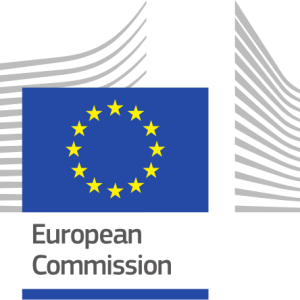-
EU invests €3.6 billion of ETS revenues in innovative clean tech projects with focus on industry and renewable hydrogen
Date posted:
-
-
-
Post Author
Greg Kelsall
-
-

The EU Commission is awarding over €3.6 billion to 41 large-scale clean tech projects, to be financed through the EU Innovation Fund. This Fund is one of the world’s largest funding programmes for the deployment of net-zero and innovative technologies. Financed by revenues from the auctioning of allowances from the EU Emissions Trading System (EU ETS), it has already held two large-scale calls awarding €1.1 billion and €1.8 billion in grants to 7 and 16 projects respectively including cement related projects as reported previously by the IFRF. With a currently estimated revenue of approximately €40 billion until 2030, the Innovation Fund aims to help businesses invest in clean energy and bring to market technologies that can decarbonise European industry while fostering its competitiveness. Grants are awarded to cover the cost gap between such innovative technologies and conventional ones. The Innovation Fund awards grants through regular calls for proposals and in the future through competitive bidding procedures (auctions).
The 41 large-scale clean tech projects funded in the current third call for large-scale projects cover a wide range of industries, such as cement, steel, advanced biofuels, sustainable aviation fuels, wind and solar energy, and renewable hydrogen and its derivatives. The funding will contribute to the greening of significant sectors of the European economy, in particular those that are difficult to decarbonise.
The selected projects are located in the 15 EU Member States of Austria, Belgium, Croatia, Czechia, Denmark, Finland, France, Germany, Greece, Ireland, Italy, the Netherlands, Portugal, Spain and Sweden, together with Norway. They will all enter into operation before 2030, and have the potential to avoid 221 million tonnes of CO2 emissions in their first 10 years of operation.
They cover four topics of ‘general decarbonisation’, ‘industry electrification and hydrogen’, ‘clean tech manufacturing’ and ‘mid-sized pilots’.
The projects awarded across these four topics are as below with full project details provided. More than 60% of the projects to be funded relate directly to industrial decarbonisation and hydrogen, reflecting the importance of this area to the EU’s decarbonisation efforts. In brief, the projects cover:
- general decarbonisation: 8 projects worth €1.4 billion, comprising 3 projects from refineries (BioOStrand, H2Sines.Rdam and IRIS), together with 5 projects in the cement and lime sector (GeZero, IFESTOS, KOdeCO net zero, EVEREST and GO4ZERO).
- industry electrification and hydrogen: 13 projects worth almost €1.2 billion, comprising 6 projects on renewable hydrogen production as well as 7 projects on hydrogen use in the industrial sectors of chemical industry, refineries and steel (H2 Green Steel, GreenH2Atlantic, electroMethanol-Rhône, Tarragona-HYNET, Columbus, Green Methanol in Galicia, H2M, Asturias H2 Valley, EnergHys, Trikelion, HydrOxy, GAP and Green Ammonia Linz).
- clean tech manufacturing: 11 projects worth almost €800 million, comprising 4 projects on electrolyser manufacturing, 4 projects on batteries (including recycling) and 3 projects on photovoltaic panels and modules.
- mid-sized pilots: 9 projects worth €250 million They include 2 projects on wind energy, 2 on ocean energy, 2 on chemicals (SC-HOOP and MoreTec-1), and projects in the glass sector (Volta Project) and on carbon capture and on e-fuels (CFCPILOT4CCS, E-fuel pilot).
In addition to the 41 projects selected for funding, other promising but insufficiently mature projects will receive project development assistance from the European Investment Bank. These are due be announced in the fourth quarter of 2023. At the end of the year, the Commission will launch the next call for proposals for large-scale projects under the Innovation Fund, with an increased budget of €4 billion.
